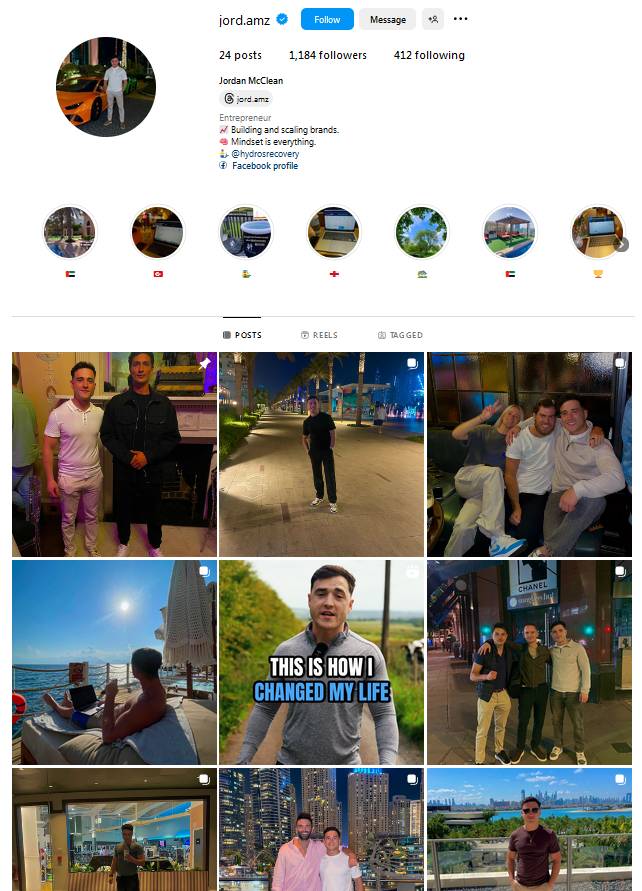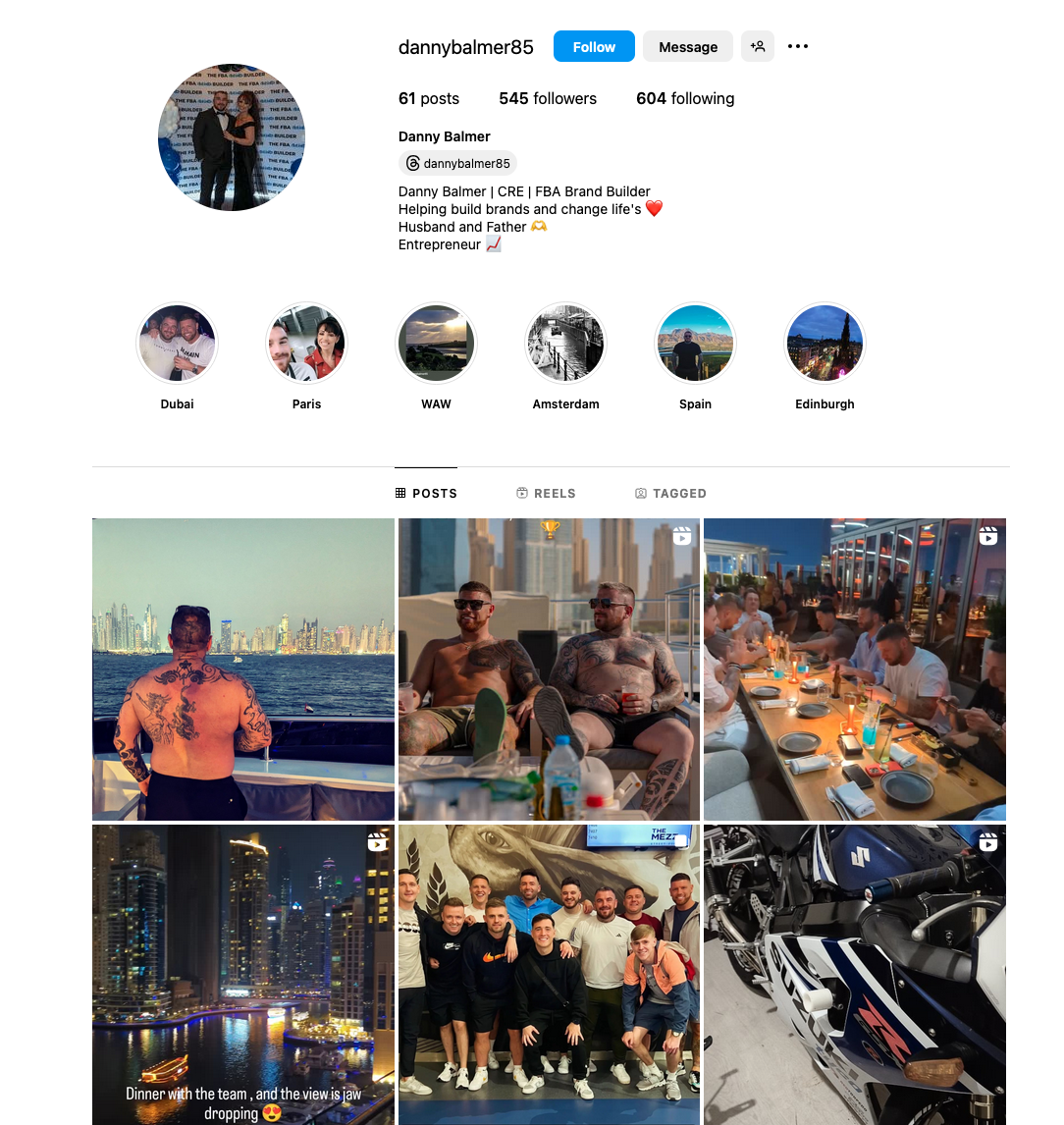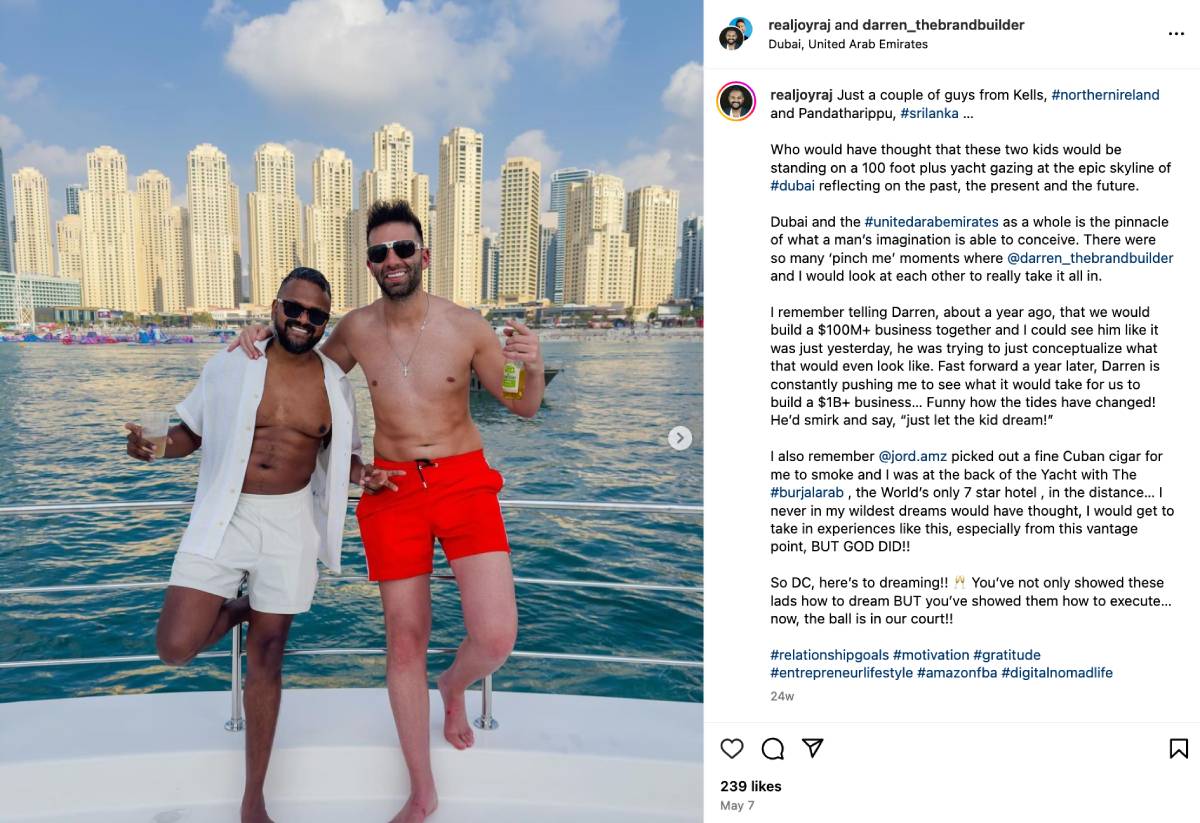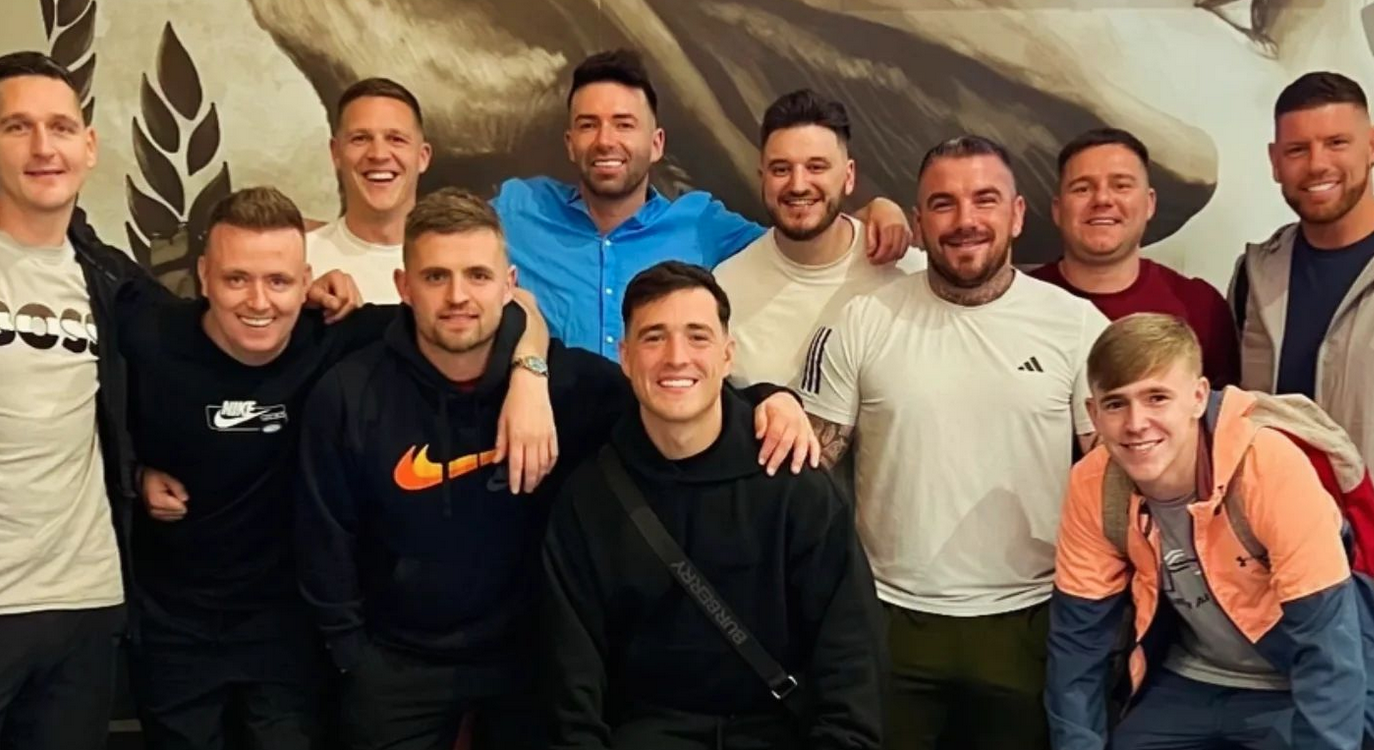With online courses, a strong social media presence is pure gold. Testimonials, success stories, and a little influencer magic can be all it takes to make a program shine. Darren Campbell, the founder of the FBA Brand Builder, seems to know this well, leaning into the power of a carefully connected influencer network to promote his Amazon coaching platform.
Many of these influencers—who come across as students or clients of the program—fill their social media with snapshots of luxury, financial freedom, and personal transformation, all attributed to their time with FBA Brand Builder. But a closer look at this crew suggests they may not be your everyday clients. Instead, it seems they’re positioned to craft a “rags-to-riches” image that makes FBA Brand Builder appear like the golden ticket to success.

How These “Students” Shape the FBA Brand
A quick scroll through the profiles of people linked to FBA Brand Builder—Mark McKay, David Crawford, Jake Parker, and more—reveals a common theme. High-end cars, exotic vacations, inspirational quotes, and of course, a shoutout or two to the FBA Brand Builder program as the key to their “new” lives. They post about life changes, brand-building, and financial independence, often attributing these wins directly to Darren Campbell's program.
What’s interesting is how uniform their content feels. The same luxury vibes, the same messages about freedom and success. They’re even frequently seen hanging out together, making it seem like FBA Brand Builder is a tight community of wildly successful entrepreneurs. But the similarities and their shared proximity to Campbell hint that they’re likely part of a planned marketing setup rather than just organically inspired clients.
The Allure of the “Rags to Riches” Story
Each of these influencers seems to follow a classic "rags to riches" storyline, which, let’s face it, is a huge draw for aspiring entrepreneurs. Social media audiences love the transformation narrative—posts about humble beginnings, financial struggles, and then finally “making it.” It taps into an emotional appeal, making viewers feel like they, too, can go from ordinary to extraordinary.
This rags-to-riches image pairs perfectly with visuals of a luxury lifestyle and constant reminders that “anyone can do this.” It creates an illusion that joining FBA Brand Builder is all it takes to make it big. This narrative sidesteps the messy, challenging parts of building an e-commerce business, honing in instead on the rewards. And because of that, it’s an extremely effective hook.

Influencers as Living Proof of Success
In this setup, these influencers become more than promoters; they’re basically visual testimonials for the program. Instead of relying on standard written testimonials that people might brush off, these influencers show “proof” through curated posts about financial freedom and luxury. The constant flow of success and camaraderie in their posts positions them as walking, talking evidence that Campbell’s approach delivers big results.
This strategy also lets the program's message hit different groups. Family-oriented folks might resonate with influencers posting about quality family time, while others might be drawn to pictures from high-end resorts or fancy cars. By diversifying the faces and lifestyles shown, the program broadens its appeal and creates an even stronger pull.
Building a Community Vibe
Part of what makes this influencer strategy so compelling is the sense of community these influencers project. They often post photos from group events, retreats, or just casual meet-ups, always in luxe settings. This imagery builds a sense of exclusivity and community, making the FBA Brand Builder seem not just like a program, but a supportive circle of like-minded people.
For new entrepreneurs who often face a lonely journey, this promise of a community that “gets it” can be as attractive as the financial promise itself. It suggests that by joining FBA Brand Builder, people aren’t just buying a course; they’re joining a circle of success and support that they wouldn’t find on their own.

Marketing or Reality?
Of course, while all this creates a compelling image, it’s worth questioning just how real these portrayals are. It’s not entirely clear if these influencers achieved their lifestyle transformations strictly through Campbell’s program or if they’re financially incentivized to promote it. If these individuals have strong ties to Campbell, it’s possible they’re more like brand ambassadors than true, unaffiliated clients. And if that’s the case, the FBA Brand Builder may not be offering the average experience for its clients but rather a carefully crafted story.
Using influencers in this way brings up some ethical concerns, too. If these influencers are connected to Campbell in ways that aren’t obvious, their posts could be leading prospective clients to expect results that aren’t typical. Essentially, these influencers would then serve as more than just testimonials—they’d be highly persuasive marketing tools, selling an ideal that might not reflect the actual journey of a typical FBA Brand Builder student.
The Ethics of Aspirational Marketing
Creating an aspirational brand image through influencers isn’t exactly a new strategy, but it can cross ethical boundaries when influencers blur the line between reality and promotion. If their success is based on previous connections, resources, or other unrelated factors, prospective clients might be setting themselves up with unrealistic expectations.
For a program to be genuinely ethical, transparency is key. If these influencers are being compensated or are part of a brand ambassador deal, that should be disclosed upfront. Without that clarity, there’s a real risk that prospective clients may feel misled, stepping into a program that might not deliver the level of success shown by its most prominent faces.
Final Thoughts
Darren Campbell’s FBA Brand Builder has crafted a powerful narrative with the help of influencers showcasing luxury, freedom, and success. These influencers serve as living testimonials, giving potential clients a taste of what could be possible. Yet, the close ties between Campbell and these influencers, along with their highly polished “from zero to hero” stories, suggest this might be more of a marketing strategy than a real look at an average client’s journey.
In the end, aspirational marketing like this can work wonders, but it needs transparency and authenticity to be fully ethical. Those thinking about joining should look beyond the glitz and consider what building a successful Amazon business really takes. After all, true success usually involves more than just a single course—it requires grit, consistency, and, every so often, a reality check when scrolling through social media.

